It was the biggest gold robbery of all time, with £26million of bullion, diamonds and cash stolen from a Brink’s-Mat warehouse near Heathrow.
BBC drama The Gold – which returns to our screens this week – tells the story of the 1983 heist and its bloody aftermath, which continues to fascinate Brits more than 40 years later.
But today’s gangs aren’t only interested in stealing gold, they are buying it too – with dirty cash used to purchase secret stashes that can be hidden in lock-ups or buried under gardens.
One Essex drug dealer was caught with £24,000 worth of solid gold coins tucked away in a safe.
Another used some of the £100,000 proceeds from a Birmingham county lines operation to acquire a collection of 100g bars.
While this might seem like an old-fashioned way of going about things, it’s partly a response to very modern pressures, with the rise in digital payments making piles of banknotes something of a hot potato for criminals.
Surging gold prices are also making this approach more attractive, given buried bullion is likely to be worth significantly more when it’s dug back up again several years in the future.
When it comes to organised crime, gold is as big in the age of Bitcoin and online banking as it ever was…

BBC crime drama The Gold stars Hugh Bonneville as Met detective DCS Brian Boyce (centre)
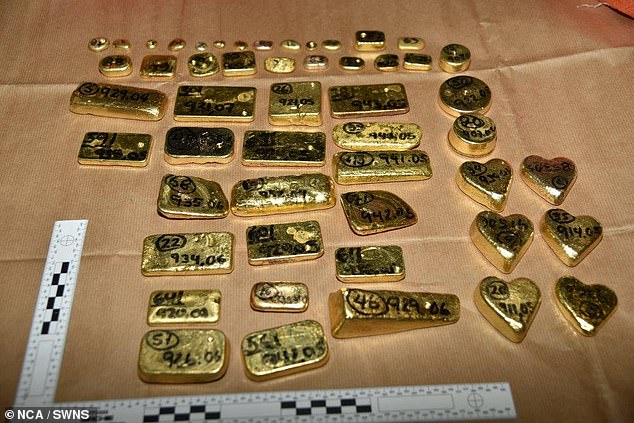
A £4 million gold haul previously seized at Heathrow Airport as part of an investigation into drug gangs
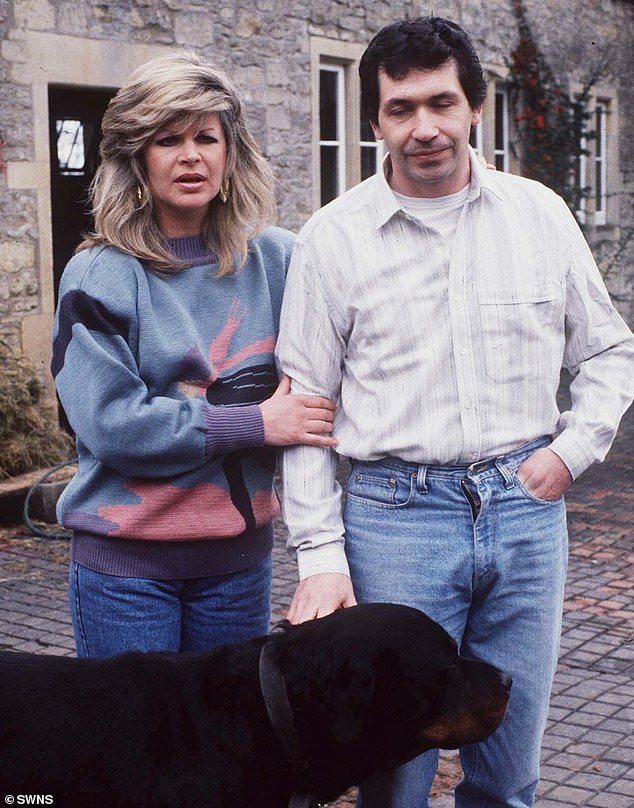
The Brink’s-Mat gold was melted down by John Palmer – seen with his wife Marnie at their home near Bath
Organised crime expert Gary Carroll, who has appeared as an expert witness in numerous drug-related cases involving gold, describes the metal as ‘incredibly useful’ to criminals.
‘Gold lets criminals reduce £10,000 of drug money into an object they can fit in the palm of their hand,’ he told MailOnline.
‘In my experience, it’s often buried in back gardens or hidden many miles away.
‘The other benefit is gold tends to appreciate in value. So not only are you able to hide cash wealth, you’re able to make money while doing so.
‘This doesn’t usually involve massive bars, what I tend to see are ones weighing half an ounce, an ounce or 28 grams. So they are still worth a large amount of money but are very small.’
Some of this gold is bought on the black market, but it can also be purchased from legitimate sellers.
While sellers of investment gold have a legal obligation to ensure they sell only to identifiable, legitimate clients, ID is not always requested for small purchases.
Mr Carroll, who runs the consultancy Claymore Advisory Group, believes social changes are one factor driving gold purchases among Britain’s criminals.
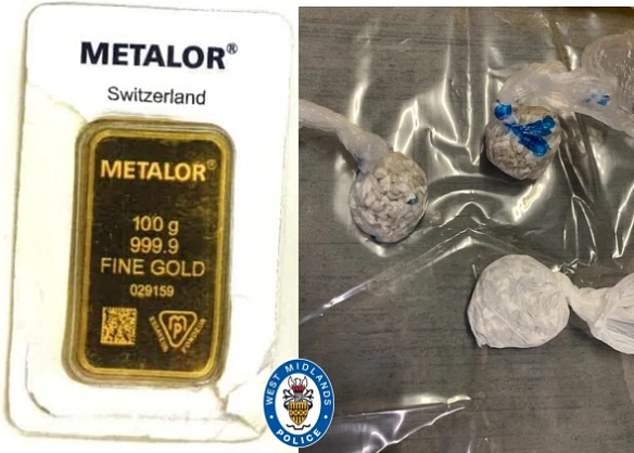
A West Midlands gang behind the ‘KD’ county line used their illicit cash to buy small gold bars
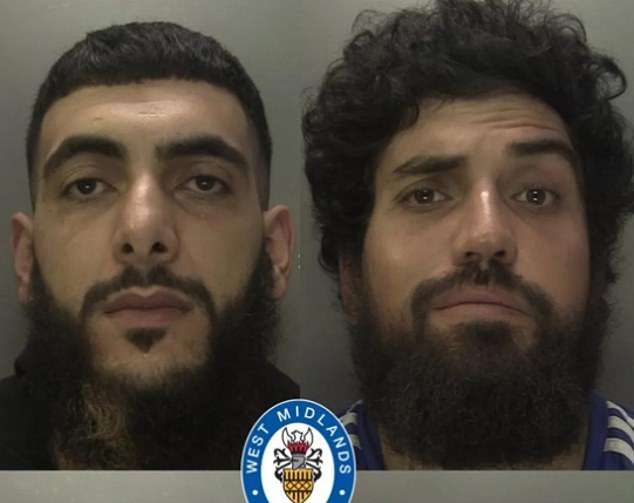
Ahmed Kadoora (left) led the gang, which supplied cocaine and heroin in Birmingham and Worcester, while Khalid Alabdullah (right) purchased the gold
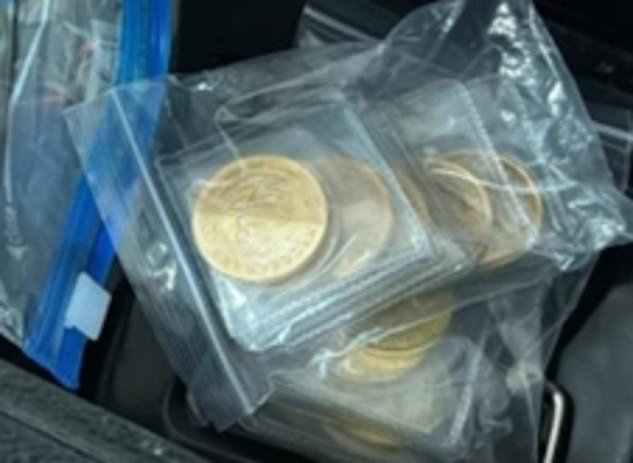
One Essex drug dealer was caught with £24,000 worth of solid gold coins tucked away in a safe
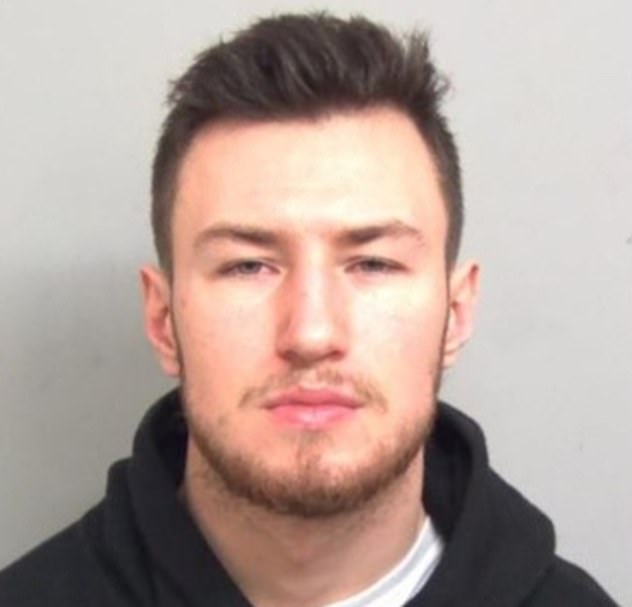
Francis Lagonski, 23, was handed a six-year jail term for two counts of money laundering and conspiracy to supply drugs
‘Going back 15 years ago we were much more of a cash-led society, which made it easier to launder money through shops, garages and taxi firms, or simply spend it in large amounts,’ he said.
‘Going cashless does create a problem. To me or you having £50,000 in cash hidden under your bed is nice, but for a drug dealer it’s problematic.
‘It’s hard to spend it – many car dealers won’t let you buy cars with cash any more and anti-money laundering legislation is in full swing.
‘So changing it from one form of currency to another – gold – is beneficial. You can then sit on it for weeks, months or years before converting it into money or trading it on the hand-to-hand gold market with a slightly bent jeweller.’
Francis Lagonski, a 23-year-old drug dealer, was found with £24,000 worth of solid gold coins in a safe at his home in Braintree, Essex, when it was raided as part of a drugs investigation.
In a sign Lagonski was no Luddite, officers also seized digital assets – including cryptocurrency – worth an estimated £100,000.
Police described the haul as evidence the dealer was ‘laundering his criminal gains as he went’ and he was handed a six-year jail term for two counts of money laundering and conspiracy to supply drugs.
Mr Carroll was an expert witness in the trial of the gang behind the ‘KD’ county line run by Ahmed Kadoora, which supplied at least 5kg of cocaine and heroin on the streets of Birmingham and Worcester.
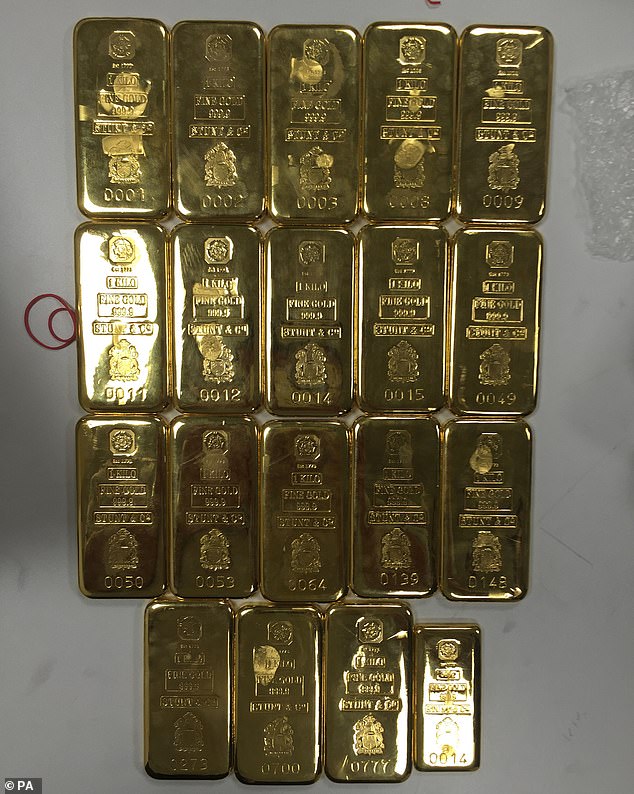
One gang who converted dirty cash into gold were convicted earlier this year as part of what may have been the UK’s biggest money laundering trial
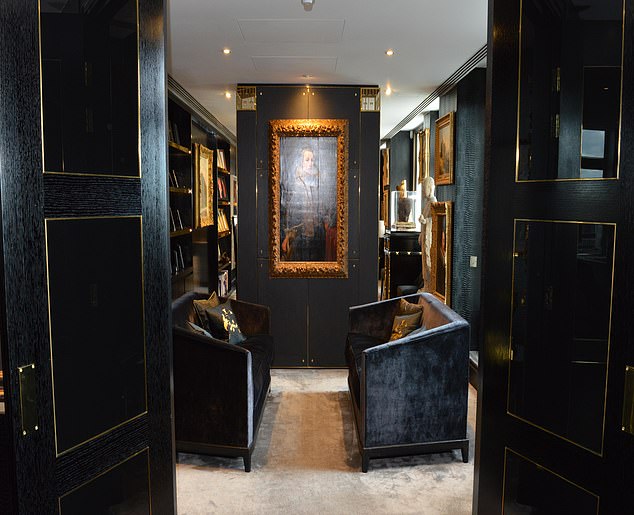
Leeds Crown Court heard money was counted at an opulent London office (pictured) belonging to the socialite James Stunt. But he was cleared of all charges by a jury
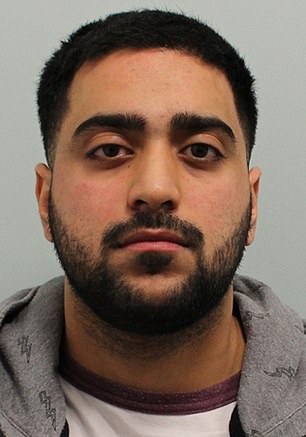
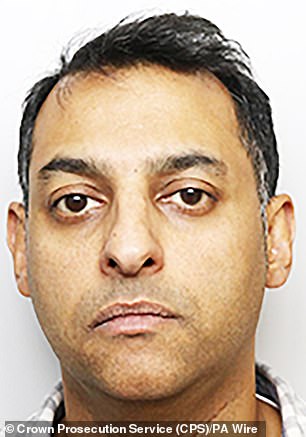
Arjun Babber, 32, and Haroon Rashid, 54, were prosecuted following the trial
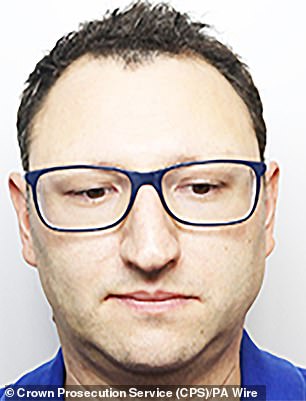
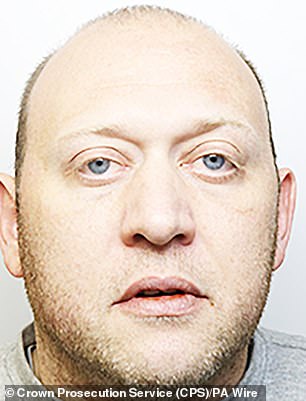
Fellow conspirators Daniel Rawson and Gregory Frankel. Rawson was the only gang member present in court to hear the conviction
A jury heard how one member of the conspiracy, Khalid Alabdullah, converted some of the gang’s £100,000 revenues into gold bars.
‘The bars weighed just 100g,’ said Mr Carroll. ‘Given they are so small you can see the attraction in terms of disguising them.
‘Gold is a transferrable, tangible, valuable commodity that if managed correctly doesn’t need to have any actual link to the owner.
‘Then, unlike other assets like cryptocurrency or cars, a piece of gold can be passed from person to person with no record.’
In addition to criminals buying small amounts of gold for their own use are specialised money launderers who process dirty cash generated by criminal clients.
One gang, who operated through a business in Bradford, were convicted earlier this year in what is believed to be the biggest money laundering prosecution in UK history.
Banknotes were brought in bags and holdalls to Fowler Oldfield, a jewellery company, before being turned into gold grain, which is untraceable and easier to conceal than bullion. Much of this gold is then believed to have been taken out of the UK.
Gregory Frankel, 47, Daniel Rawson, 47, Haroon Rashid, 54, and Arjun Babber, 32, were jailed for a combined total of 43 years for laundering £266 million.
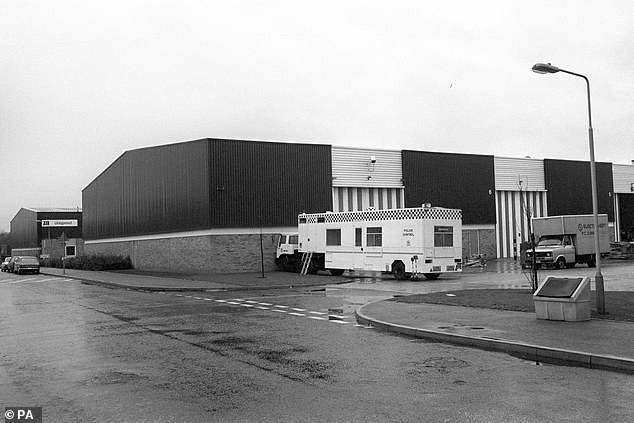
The Brink’s-Mat depot, near Heathrow Airport, where a gang stole £26million worth of gold bars in 1983. They were actually targeting cash and inadvertently stumbled on gold
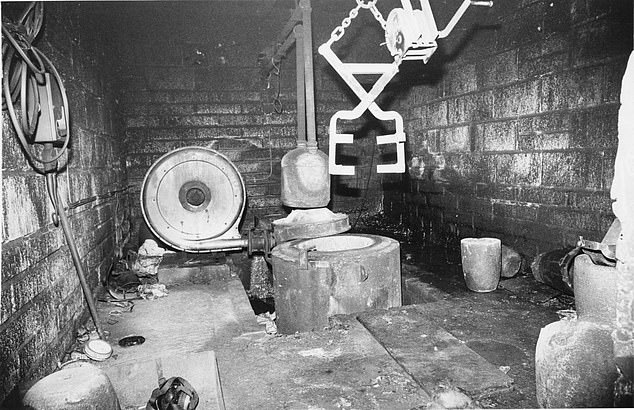
The smelting shack in the grounds of John Palmer’s home where the gold was melted down
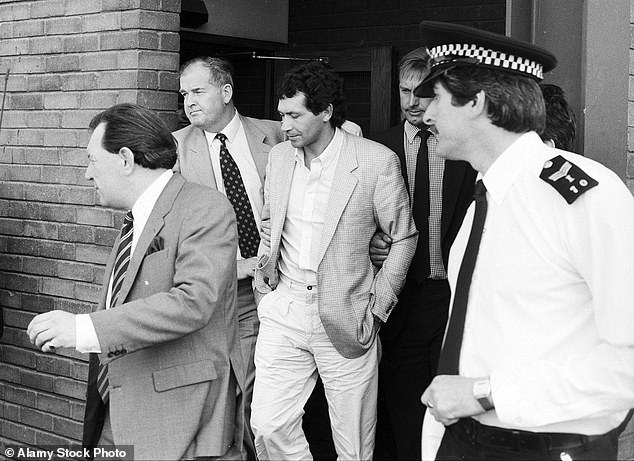
Palmer fled abroad but was tracked down by police, who are seen escorting him in this photo from 1986
Socialite James Stunt, the former son-in-law of Formula 1 tycoon Bernie Ecclestone, was charged over the scheme but walked free from Leeds Crown Court after being cleared.
As this case indicates, the link between gold and organised crime stretches far beyond Britain’s borders.
In fact, the United Nations is now so concerned about the role of gangs in the international trade in bullion that it considers the issue a ‘serious global threat’.
One major problem is criminals taking over mines and refineries in South America and Africa. The product of this illicit trade is often termed ‘blood gold’ due to the exploitation usually involved.
And while the murky nature of the international metals market makes it difficult to say for sure, experts believe some may be ending up in Britain.
Ahmed Soliman is a Senior Research Fellow at the Africa Programme at Chatham House who has studied illegal gold mining.
He said armed groups and cartels often set up mines in ‘ungoverned spaces’ inside conflict zones before using the proceeds to enrich themselves or buy weapons.
The bullion stolen in the Brink’s-Mat robbery was melted down by John Palmer, who like the rest of the gang was a violent career criminal.
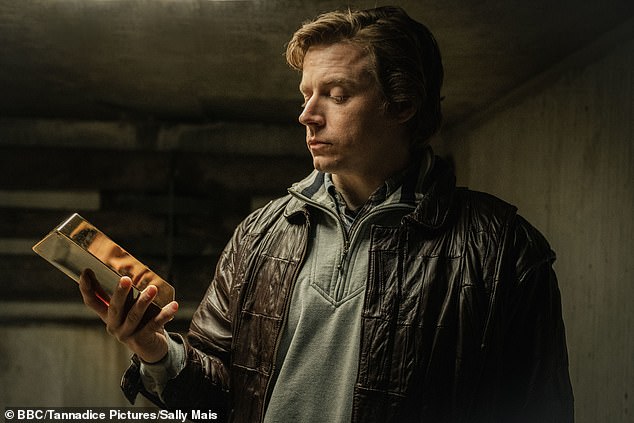
Brink’s-Mat gang member Kenneth Noye, played by Jack Lowden, will not appear in the second series of The Gold after fierce criticism that the first series glamorised the violent killer

Noye went on to murder a 21-year-old in a road rage attack 13 years after the robbery. But critics claimed the first series depicted him as a ‘handsome class warrior’
It was then recast and combined with copper to disguise it, before being sent around the world.
Most of the haul – worth around £111million today – was never recovered.
Mr Soliman said modern criminals frequently melt down or rebrand illicit gold to hide its origin.
‘With other minerals like blood diamonds they are more traceable but the same doesn’t really exist for gold – it’s very highly mobile and can be moved across borders and melted with new stamps put on,’ he said.
‘The majority of gold coming from Sudan and the African continent goes to the United Arab Emirates, either directly or indirectly.’
The researcher believes it as ‘very much a possibility’ that some of this gold may end up in the UK, but says it is ‘difficult to know for sure’.
What everyone agrees on is that gold continues to play a role in organised crime just like it did in the days of the Brink’s-Mat robbers.
And given its numerous attractions to criminals looking to stay one step ahead of the law, there’s no sign of that changing any time soon.











